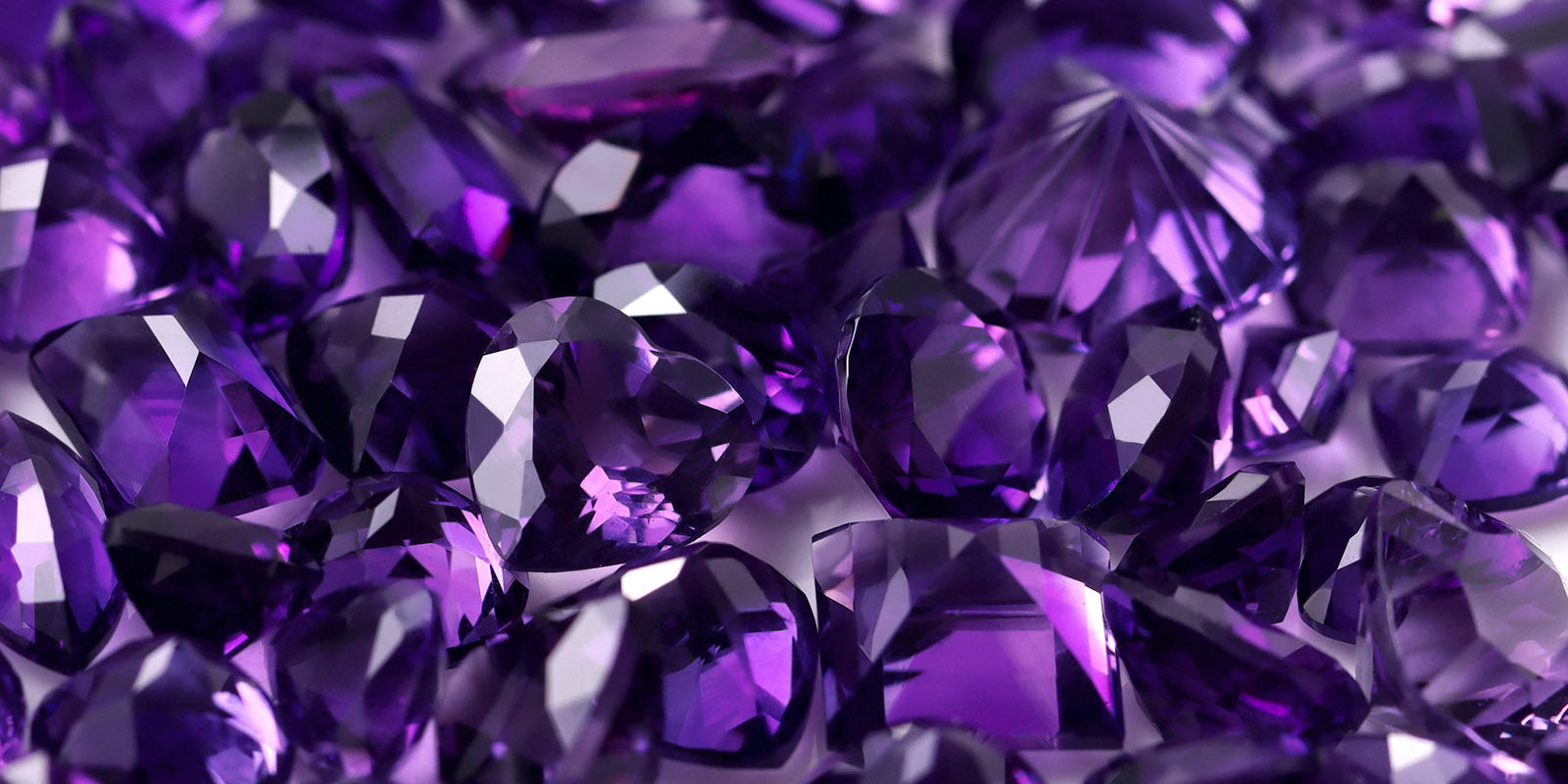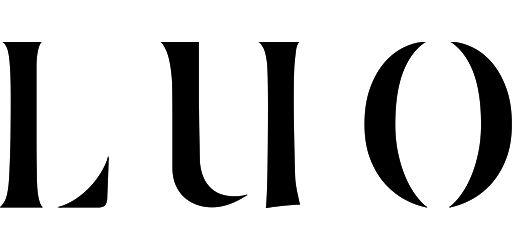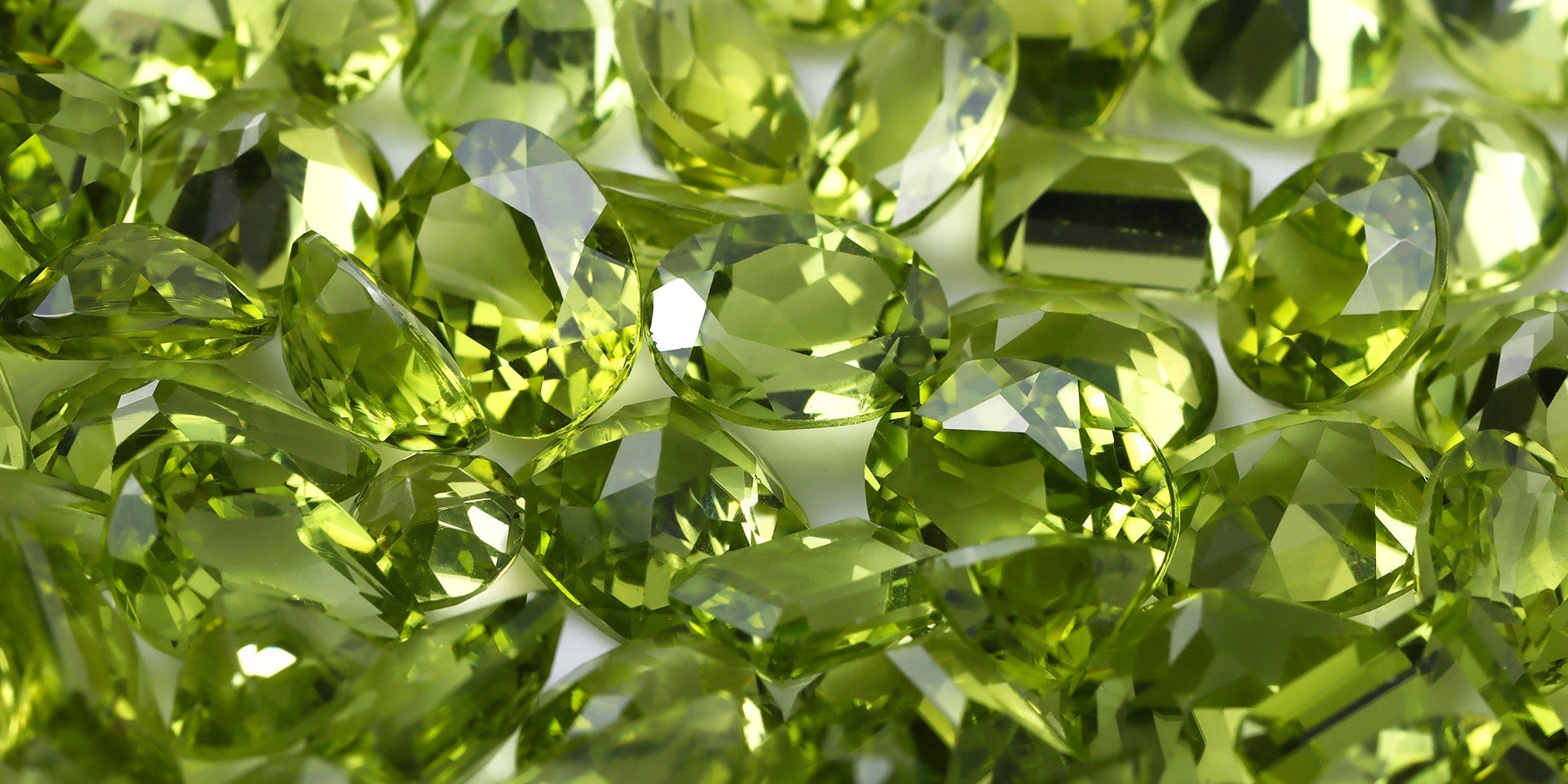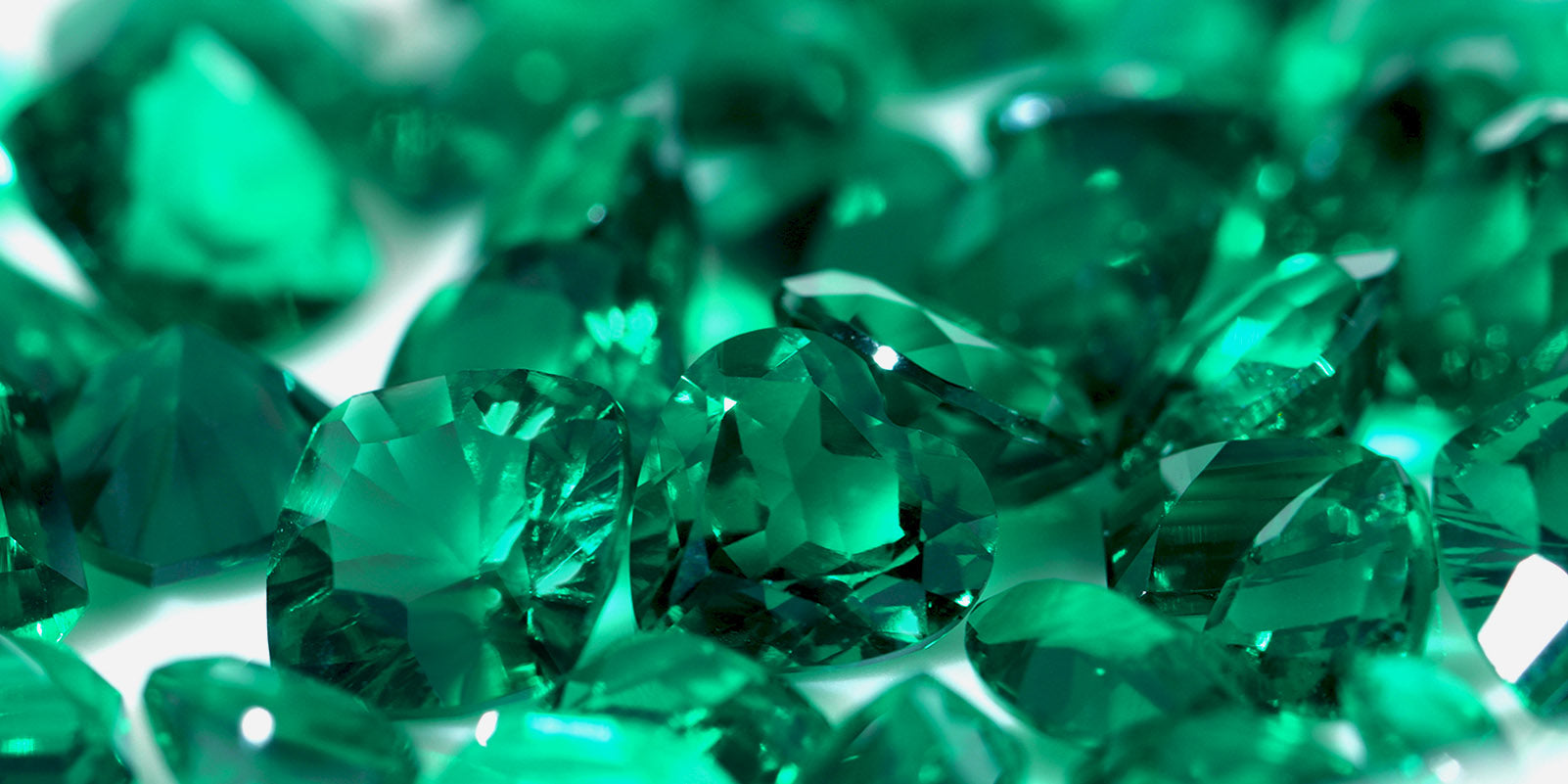
Amethyst Gemstone Overview
What is an amethyst?
As a semiprecious gemstone, Amethyst is often used in jewelry. Amethyst is usually a transparent variety of quartz that comes in shades of purple. Its mysterious purple hue has retained its appeal since ancient times, from veteran jewelry collectors to the young. Let's uncover the mystery of Amethyst and help you choose the gemstone you want.
4 Varieties of Amythyst
1. Ametrine
Ametrine is a special kind of Amethyst, which was not well-known until the early 1970s. It is a variety of bicolor quartz in which Citrine and Amethyst occur in contact with one another in a single crystal. Most Ametrine is mined from the Anahi Mine in eastern Bolivia.
Natural Ametrine consists of zones of Citrine intergrown between zones of Amethyst. The trace element contents in the chromatophores that produce Citrine and Amethyst are significantly different in the yellow and purple portions of the Ametrine crystal. Hence, Ametrine should probably be considered a separate variety of transparent quartz, at least in the gem trade.
2. Green Amethyst
Ranging from pastel to deep forest green, Green Amethyst, Prasiolite, is a special variety of Amethyst. This gemstone used to be found in Brazil, the USA, Poland and Canada. However, since 2019, it has only been found and mined in Brazil. This rarity makes green amethyst even more desirable, as it is in high demand.
However, the gemstone can be created artificially. Synthetic Green Amethyst is produced when heat is applied to a certain type of Amethyst. Natural Green Amethyst would also be heat-treated to keep its green hue.
3. "Siberian Amethyst"
With a deep purple, slight blue hue, flawless clarity, rare red flash, and precision cut, "Siberian Quality" no longer refers to the stone’s origin but a grade term of Amethyst. Siberian Amethyst is extremely rare, so it tends to be very expensive.
An amethyst's color grade determines its quality and value. Siberian Amethyst typically ranges in color from a faint lilac to a rich purple with red and blue tones. As a general rule, the deeper the shade, the better quality the Amethyst.
4. "Rose de France Amethyst"
In recent years, “Rose de France”, the lightest and pinkish violet-colored Amethyst gained in popularity because of intensive marketing. Generally speaking, quality Rose de France Amethyst needs to have very few inclusions, meaning that it looks clear and crisp. This kind of Amethyst appeals especially to young people.
It is also known as Lavender Amethyst and Brazilian Amethyst because its main mining location is Brazil. The name “Rose de France” came along much later, most likely as a marketing technique to evoke the decadence and glamour associated with France.
Symbolic Meaning of Amethyst
- Amethyst is the February birthstone.
- As the stone of St. Valentine and faithful love, Amethyst is also the 6th and 17th wedding anniversary gemstone.
- The status symbol of royalty, regalia, and the aristocracy, because of its lilac-to-deep purple hues.
- As “the bishop’s stone”, it was associated with the tears of Bacchus, god of wine, for its power to provide clarity and sobriety.
- Amethyst was also called Ahlamah in Hebrew, which is the ninth gemstone in the breastplate of the High Priest, as well as the twelfth foundation stone for the New Jerusalem
- Tibetans consider Amethyst sacred to the Buddha, so they make prayer beads from it and use it in temple offerings.
Amethyst Properties
- Mineral: Quartz
- Refractive Index: 1.544 to 1.553
- Birefringence: 0.009
- Specific Gravity: 2.66
- Mohs Hardness: 7
- Crystal System: Trigonal
Color Zoning: A Special Feature of Amethyst
Natural Amethyst can be identified with a microscope if it exhibits color zoning and contains characteristic mineral inclusions. Color zoning refers to the occurrence of variations in color intensity, patterns, and distribution within a single gemstone. This phenomenon can create distinct bands or patches of color, causing the gemstone to appear uneven in hue or tone. It would dramatically reduce the value of the gemstone.
Gemstone experts use techniques such as re-cutting and treatment to minimize or enhance color zoning effects as necessary. Cutting style and orientation are important considerations when cutting natural crystals with strong color zoning. Certain cuts, such as step cuts, can enhance color zoning by creating distinct lines of light and dark. In contrast, brilliant cuts can minimize color zoning by minimizing color concentration in specific areas of the gemstone.
Price of Amethyst
The price of Amethyst is also measured by 4Cs, including color, clarity, carat weight, and cut. For most gemstones, their values would increase exponentially as the carat weight increases. However, the price of Amethyst greatly depends on the color of the gemstone.
The best Amethyst has a strong reddish purple to purple coloring with no visible color zoning. Customers prefer stones with reddish-purple to dark purple coloring, but the Amethyst still needs to be bright enough that it doesn’t look black in dim lighting. An Amethyst’s value decreases if there is any brownish or bronze-colored tinting in the stone. When an amethyst is too light, the value of the stone decreases as well.
Mining Locations of Amethyst Crystal
Being discovered and mined around 2,000 BC, Amethyst has a long history and many deposits throughout the world. Most of Amethyst is formed and found in igneous, metamorphic, and sedimentary rocks. South African Amethyst is known for its bright and rich color, ranging from deep purple to light purple. Our LUO Jewelry used to select remarkable high-quality South African Amethyst to make jewelry, but the production of it is so limited that we now choose Amethyst from Brazil and Uruguay.
Brazil is one of the most significant mining locations, which has many large geodes in basalts. Uruguay produces less Amethyst than Brazil, but many consider its clarity and color to be superior to the latter. There are many other mining locations of Amethyst such as Africa, Spain, Argentina, Russia, Afghanistan, South Korea, Mexico, and the United States.
LUO's Amethyst Jewelry
LUO Jewelry offers customers natural Amethyst rings, earrings, and necklaces, which have high quality and clarity. Welcome to contact us if you want to have a piece of unique jewelry customized for you.


